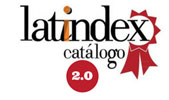Estimación de la estabilidad de un sazonador a base de amaranto reventado y maní tostado, a partir del índice de peróxidos
DOI:
https://doi.org/10.29019/enfoqueute.v3n1.6Keywords:
Peróxidos, estabilidad, sazonador, amaranto, maní, Peroxide, stability, seasoning, amaranth, peanutsAbstract
El objetivo del presente trabajo fue evaluar la estabilidad, durante el almacenamiento, de un sazonador nutritivo elaborado con amaranto reventado y maní tostado, empleando el índice de peróxidos como un indicador del deterioro del producto. Para lo cual se almacenó el sazonador, empacado en fundas de polipropileno y aluminizadas, a condiciones ambientales (17°C, 50%HR) y aceleradas (35°C, 90%HR) durante 30 días; se analizó el índice de peróxidos cada 5 días. Se consideró que el índice de peróxidos, sigue una cinética de orden cero durante el tiempo de almacenamiento. Considerando que las grasas y aceites comestibles, pueden alcanzar un valor máximo de índice de peróxidos de 20 mEq/kg, se determinó que el sazonador nutritivo empacado en funda de polipropileno, y almacenado a condiciones ambientales (17°C y 50%HR) se mantuvo estable durante 81 días; mientras que el almacenado a condiciones aceleradas (35°C, 90%HR) alcanzó los 68 días. Asimismo el sazonador empaquetado en funda aluminizada, y almacenado a
Abstract:
The aim of this study was to evaluate the stability during storage of a nutritious seasoning made from popped amaranth and roasted peanuts, using peroxide index as an indicator of deterioration. The seasoning was stored in polypropylene and aluminized bags at room temperature (17 °C, 50% RH) or accelerated conditions (35 °C, 90% RH) during 30 days. The peroxide index was analyzed every five days. It was considered that the peroxide index followed a zero-order kinetic during the storage time. Assuming that oils and fats can reach a maximum level of the peroxide of 20 mEq/kg, it was observed that the nutritional seasonings packaged in the polypropylene bag stored at room temperature or accelerated conditions remained stable for 81 days 68 days, respectively. In the same way, the samples packaged in the aluminized bags and stored at room temperature remained stable for 101 days whereas the samples in the accelerated conditions reached 78 days.
Downloads
Downloads
Published
How to Cite
Issue
Section
License
The articles and research published by the UTE University are carried out under the Open Access regime in electronic format. This means that all content is freely available without charge to the user or his/her institution. Users are allowed to read, download, copy, distribute, print, search, or link to the full texts of the articles, or use them for any other lawful purpose, without asking prior permission from the publisher or the author. This is in accordance with the BOAI definition of open access. By submitting an article to any of the scientific journals of the UTE University, the author or authors accept these conditions.
The UTE applies the Creative Commons Attribution (CC-BY) license to articles in its scientific journals. Under this open access license, as an author you agree that anyone may reuse your article in whole or in part for any purpose, free of charge, including commercial purposes. Anyone can copy, distribute or reuse the content as long as the author and original source are correctly cited. This facilitates freedom of reuse and also ensures that content can be extracted without barriers for research needs.
This work is licensed under a Creative Commons Attribution 3.0 International (CC BY 3.0).
The Enfoque UTE journal guarantees and declares that authors always retain all copyrights and full publishing rights without restrictions [© The Author(s)]. Acknowledgment (BY): Any exploitation of the work is allowed, including a commercial purpose, as well as the creation of derivative works, the distribution of which is also allowed without any restriction.























 Enfoque UTE - Facultad de Ciencias de la Ingeniería e Industrias - Universidad UTE
Enfoque UTE - Facultad de Ciencias de la Ingeniería e Industrias - Universidad UTE